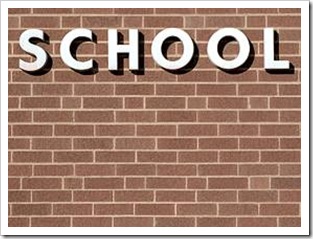 As you will be well aware, most of the systems in our life are made to suit some standard, albeit nonexistent, person. We all have to follow the same laws, we are measured and compensated in the same ways as our work colleagues and our kids go to schools that treat them the same too. How annoying!
As you will be well aware, most of the systems in our life are made to suit some standard, albeit nonexistent, person. We all have to follow the same laws, we are measured and compensated in the same ways as our work colleagues and our kids go to schools that treat them the same too. How annoying!
We know a family with a teenage boy, who has had the benefit of anything a kid can dream of – sport, music, gadgets, travel – you name it, he has had it. This boy, let’s call him Jamie, is really good with sport and people, but academic studies are not his strong suit (can you guess his communication style?).
So from time to time, we hear about his run-ins with his teachers and with his parents, once they find out. Simply put, this kid is not cut out for English and Math, and no amount of guilt feelings will make him excel, so why bother?
Well, his parents can only go by the advice of the school, which is primarily communicated via official scores and grades. When Jamie “brings home” lower-than-expected scores, his parents punish him by taking away his sporting rights, which makes him miserable.
Yet these scores assume that all kids of the same age group can achieve roughly the same, if only they put in enough effort. I am here to tell you that this assumption is not only wrong, it can be damaging to our kids’ morale, hurt their performance in their strong areas and gradually erode their self esteem into nonexistence.
Consider the following questions:
- Who says kids should be grouped by their age at school?
- Who says all kids should be able to perform at the same level in all subjects?
- Who says academic subjects are better and therefore indicate a person’s overall abilities and worth?
The short answer is “The government”.
The long answer is “everybody, including us, unless we actively seek to change the situation or at least change it for our own kids”.
Who is school for?
 Who is actually served by the education system? Is it the kids? Is it the parents? Is it the government?
Who is actually served by the education system? Is it the kids? Is it the parents? Is it the government?
Of course, the kids are the ones going to school every day and doing their homework, but they have very little say in what school does for them. Parents have a bit more say, especially in the selection of schools suitable for their kids. But for the most part, the government is the body that controls the schools, from equipment to staff selection and curriculum.
What is school for?
The government keeps the education system there to allow parents to go to work and to produce law-abiding citizens. It sounds cynical, but it is true.
What about the parents and the kids?
Well, the parents and the kids expect different things from school, but they can only work within the system to get what they want.
In general, most kids want to have fun at school and could not care less about anything else. As long as Recess was good, school was great.
Parents, on the other hand, mostly ignore this question and are guided by the system as to what to expect of school and of their own kids. Hand on your heart – have you ever thought of the questions above? If you have, hats off to you. If you have not, you are normal and this is your chance.
What should school be for?
In our parenting workshops, we talk to parents about the things they want for their kids. The list usually starts with things like success, a good job and money, but invariably ends with health, love and happiness.
 Now, a good school may teach your kids to be financially successful, either through a good job or through business. An average school (and most are average) may not even accomplish that. But schools do quite a poor job at teaching the most important things in life – health, love and happiness. There is (almost) nothing about health management, open-minded nutrition, building and maintaining good relationships or personal development, when these should occupy most of the time.
Now, a good school may teach your kids to be financially successful, either through a good job or through business. An average school (and most are average) may not even accomplish that. But schools do quite a poor job at teaching the most important things in life – health, love and happiness. There is (almost) nothing about health management, open-minded nutrition, building and maintaining good relationships or personal development, when these should occupy most of the time.
In an ideal world, school would be based on each student’s special needs, desires and expectations. Such a school would teach basic health, relationship and emotional skills and then make a wide range of subjects and activities available to kids, each of which taught to suit all applicable communication styles. The ideal school would be a free, nurturing and happy place that helps kids fulfill their potential.
Naturally, the ideal school would be created by the ideal government…
What can I do now as a parent?
Fair question. After all, you did not come here to read doom and gloom. You want to get something out of your reading for your family, right?
The good news is you have already started. By questioning why you are sending your kids to school, you have already changed your focus. The next step is to talk about it with your partner and come up with a good and agreed statement you are both happy with. In your statement, make sure to include your commitment to taking responsibility for your kids’ education.
Next, make your own list of criteria for measuring the quality of your kids’ schooling. Important note: you should have a different list for every child, once you have identified their strengths and weaknesses.
Finally, use your own lists to direct your actions and your feelings towards your kids’ schooling. For example, Jamie’s parents would encourage him to be social, engage in team activities and do a lot of sport, to allow him to excel and build his self esteem. Ronit and I support Tsoof when he sacrifices academic time for music (somehow, he still managed a brilliant report card).
In this ever-changing world, you cannot honestly say you know what your kids will face tomorrow, so let them be who they are and know that emotional intelligence goes a lot further than subject-matter expertise.
Tips
- One major decision is your choice of school. For the benefit of your kids, you can send each of them to the most suitable school for them, even if this means more commuting, more money and more hassles. Remember, your kids’ happiness is your ultimate goal as a parent. Send them to a school that will make them happy
- Supplement the school’s curriculum with other activities before, during or after school hours
- Let your kids know that report cards should be used in the context of their own abilities and aspirations. A “C” in Math for some kids is truly as good as an “A+” for another.
 Emphasize progress more than results. As long as the effort scores are good and as long as there is progress in understanding and knowledge (not necessarily improved scores), things are going well.
Emphasize progress more than results. As long as the effort scores are good and as long as there is progress in understanding and knowledge (not necessarily improved scores), things are going well.- Show your kids their school system from the outside. Most kids fuss about uniform particulars, the way they sit or the way they decorate their notebooks. They see school as their universe and accept its rules as universal. Take them to other places, where things are done differently, and show them other options. My kids regard school rules as things to consider locally, while they are at school, because they have been to schools in very different places.
- Travel with your kids to expand their horizons beyond the daily routine and their normal environment. The wider their world view and the more perspective they have, the better.
Any thoughts? More ideas? Share them below in the comment box.
Happy parenting,
Gal
 Emphasize progress more than results. As long as the effort scores are good and as long as there is progress in understanding and knowledge (not necessarily improved scores), things are going well.
Emphasize progress more than results. As long as the effort scores are good and as long as there is progress in understanding and knowledge (not necessarily improved scores), things are going well.










